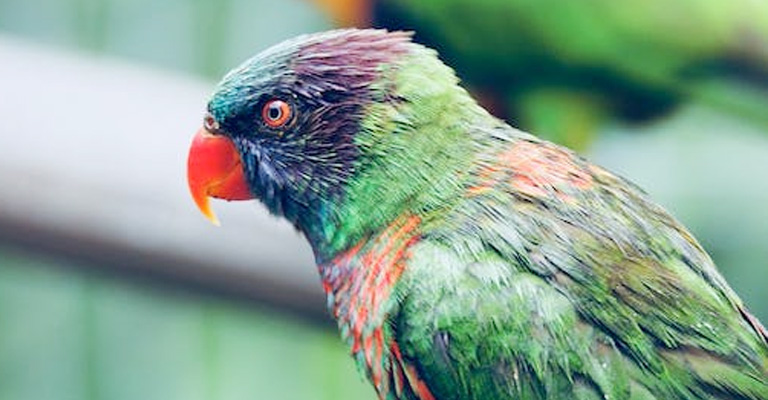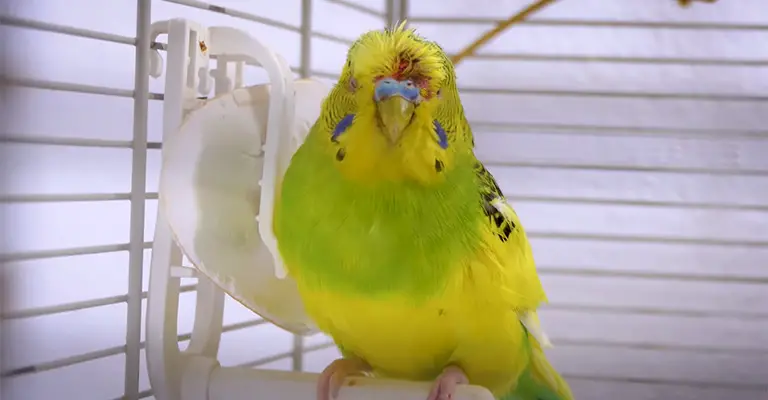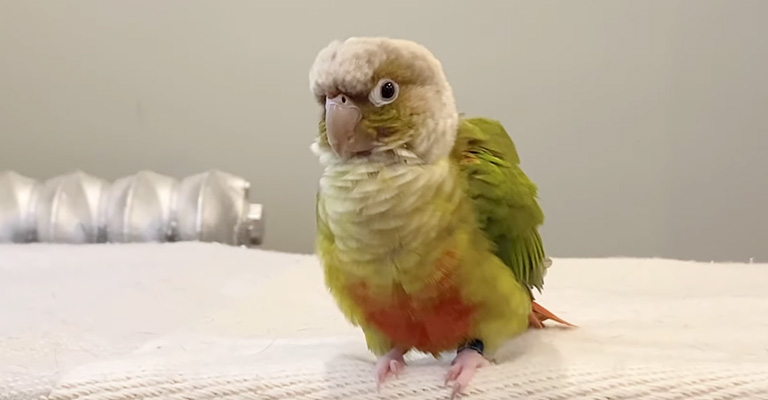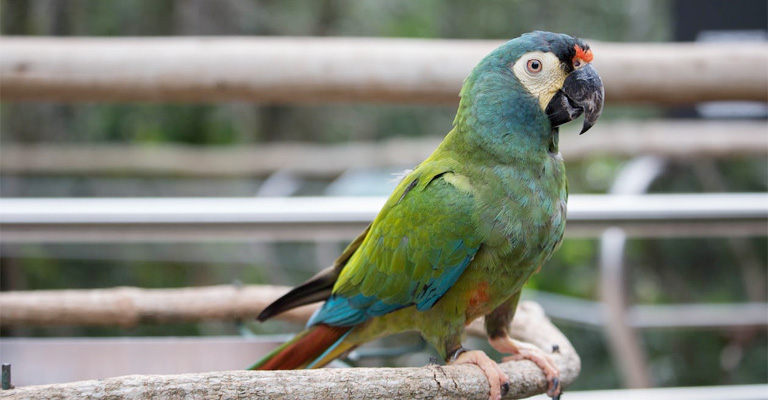Birds are known for their agility and ability to navigate their surroundings easily. However, accidents can happen, and your feathered friend may collide with an object, resulting in a head injury.
As a bird owner, knowing the risks, when to worry, and what steps to take in such situations is crucial. This article will explore the potential risks, signs to watch for, and what you can do to ensure your bird’s well-being.

My Bird Hit His Head- Risks
When a bird hits its head, there are various risks associated with the impact. The severity of these risks depends on the force of the collision. Some potential risks include:
Cerebral Hemorrhaging
You might have heard that birds have small brains, but that doesn’t mean they don’t have the same risks as humans. The fact is, a bird’s brain is very fragile and can bleed if it hits its head hard enough. This can be fatal if not treated early on in the injury process!
If your bird has recently hit their head, you should immediately take them to the vet for examination.
Internal Injuries
The impact of the collision can cause internal injuries, such as bleeding or bruising in the brain or other organs. Internal injuries are not always visible, so observing your bird’s behavior for any signs of distress is crucial.
Broken Bones
Depending on the force of the impact, your bird may sustain fractures or broken bones, especially in the skull or neck region. These injuries require immediate veterinary attention.
My Bird Hit His Head- When To Worry?

After a head injury, monitoring your bird closely for any signs of distress is important. Although some birds may recover quickly, others may require immediate medical attention. Here are some common signs to watch for:
Loss Of Balance Or Coordination
If your bird is having difficulty perching, flying, or maintaining balance, it could be an indication of a head injury.
Behavior Changes
Look for any changes in your bird’s behavior, such as increased aggression, irritability, lethargy, or disorientation. These changes may suggest neurological issues caused by head trauma.
Bleeding or Swelling
External signs like bleeding from the beak, nostrils, or eyes, as well as visible swelling on the head or face, require urgent veterinary care.
Loss of Consciousness
If your bird loses consciousness or appears unresponsive, it is an emergency situation. Seek immediate veterinary assistance.
My Bird Hit His Head- What To Do?

Taking prompt and appropriate action is crucial when your bird experiences a head injury. Here’s what you can do to ensure your bird’s well-being:
Take Your Bird To The Vet
If you are worried about your bird’s head injury, take him to the vet. Don’t wait to see if he is OK–you may be putting him at risk of serious damage or even death.
If you have any reason to think that your bird has hit his head, do not attempt to treat it yourself; instead, see a professional who can help assess and treat the injury properly.
Create A Calm And Safe Environment
To minimize stress, place your bird in a quiet, dimly lit area. Ensure the cage or enclosure is secure and free from any hazards that may exacerbate the injury.
Monitor Behavior

Observe your bird closely for any changes in behavior or physical symptoms. Keep a record of these observations to share with the avian veterinarian.
Contact A Qualified Avian Veterinarian
Reach out to a veterinarian experienced in avian care immediately. Describe the situation, symptoms, and any observed changes in behavior. Follow their advice and arrange an appointment as soon as possible.
Minimize Handling
Avoid unnecessary handling of your bird, as it can cause further stress or worsen the injury. If you need to transport your bird, place it in a small, secure carrier with minimal movement.
Skull Fractures
If you’re worried about your bird’s health, don’t be. Birds are very resilient creatures and have a thick skull that allows them to heal from an injury quickly. A minor bump on the head will likely go away in a few days with no need for intervention.
FAQ
Head injuries in birds can range from minor bumps to more severe trauma. Risks include concussions, brain swelling, internal bleeding, or fractures, which may lead to neurological issues or even death if left untreated.
If your bird exhibits symptoms such as disorientation, loss of balance, seizures, bleeding, or changes in behavior, it’s crucial to seek immediate veterinary attention. Additionally, persistent or worsening symptoms indicate a need for concern.
First, ensure the bird’s safety by placing it in a quiet, dimly lit environment to minimize stress. Monitor its behavior closely for any signs of distress. Contact an avian veterinarian for guidance and follow their instructions, as they may recommend a physical examination or further diagnostic tests.
It’s generally best to refrain from administering any first aid at home unless specifically instructed by a veterinarian. Moving or handling an injured bird without professional guidance could worsen the injury or cause additional stress.
Minimize the risk of head trauma by ensuring your bird’s environment is free of hazards, such as sharp objects, low ceilings, or open windows. Additionally, providing a spacious and adequately designed cage with soft perches can help prevent accidents.
Conclusion
When your bird experiences a head injury, it is essential to remain calm, assess the situation, and take appropriate action promptly. While some minor collisions may not cause significant harm, monitoring your bird for any signs of distress or neurological issues is crucial.
Suppose your bird does seem lethargic or uninterested in food after hitting his head. In that case, it may be time to take him to see a vet who specializes in exotic animals such as birds or reptiles (or visit an emergency clinic).
Remember, seeking veterinary attention is vital, as a professional can provide a proper diagnosis and recommend suitable treatment options to ensure the well-being and recovery of your